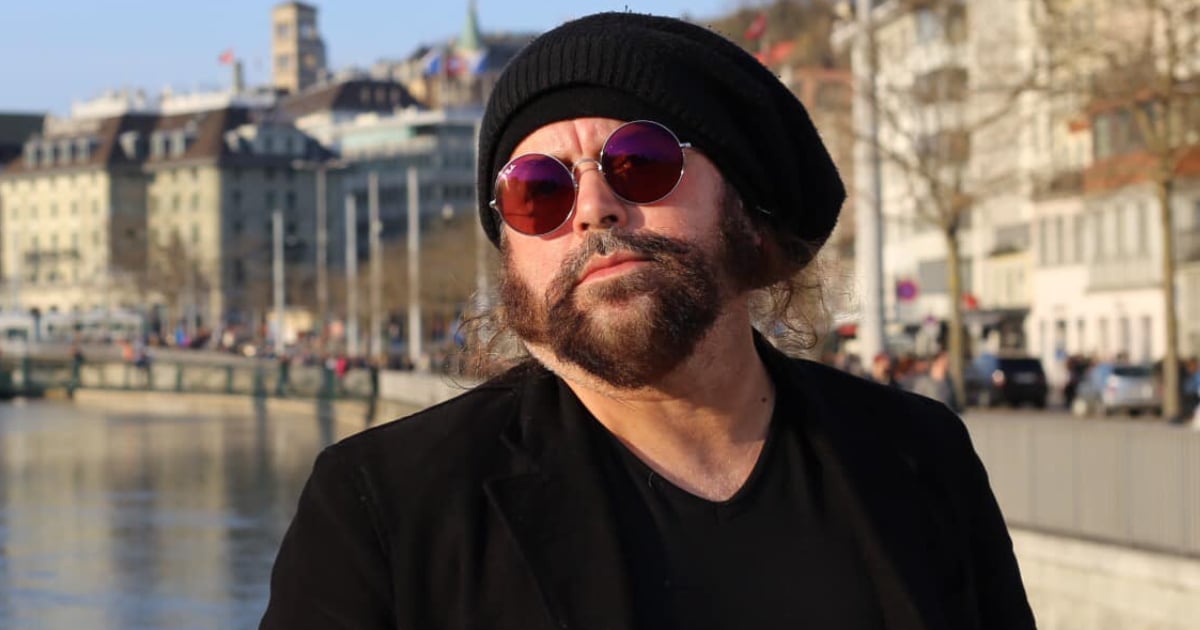The Cuban singer-songwriter Carlos Varela expressed his vision for a democratic and flourishing Cuba in a recent interview with PBS News. He described such a future as both "possible" and "necessary," while acknowledging that achieving this dream requires the disappearance of "many dinosaurs," a term he uses to refer to Cuba's so-called "historic generation" led by Raúl Castro, who is 93 years old.
"Of course, democracy in Cuba is possible. It can happen. I have faith and dream that it will, and I hope it will be very soon," Varela, known for his song "Muros y Puertas," told journalist Jeffrey Brown. "I deeply love my country and the generations that have lived alongside me there. It pains me profoundly to see so many friends leave every day, searching for a possible yet uncertain future. My songs speak about this too. Cuba could be a wonderful and prosperous country simply by opening its doors and allowing the individual freedom and talent of every Cuban to flourish in their own land. For this to happen, many dinosaurs must vanish," he declared.
Despite not shying away from discussing political issues, Varela has faced censorship from the regime of Miguel Díaz-Canel. During his last concert in Cuba, following the massive protests of 11J in 2022, the audience chanted "Libertad." In the interview, Varela insists he is not a political singer-songwriter. "No, I don't like politics, nor do I like politicians. All politicians should be on Animal Planet. But I do have social concerns, which are inherently political. That's why I've spent 43 years writing songs that make politicians uncomfortable, both in Cuba and beyond. I agree with Bob Dylan when he says he's not interested in spreading a single message. That's how I think," he emphasized, clarifying that he neither asked anyone to shout "Libertad" nor discouraged his followers from doing so.
Speaking to PBS News, Varela was also critical of what he calls "the industry of hate," noting that "we all know that over these 60-plus years (of Castroism), many have profited from the industry of hate to make money. The worst part is that the people are the ones who bear all the blame," he responded when the interviewer mentioned how he, despite sharing stages with prominent artists, has found himself caught in the crossfire between U.S. and Cuban politicians.
Carlos Varela (born in Havana in 1963) is one of the most influential voices in Cuban protest music. He began his career in the 1980s and became a key figure in the Island's music scene, even though many of his songs have been censored by the regime, especially on the radio. Known as "the Cuban Bob Dylan," he has collaborated with international artists like Jackson Browne, Dave Matthews, and Sting. Some of his notable albums include 'Jalisco Park' (1989), 'Como los Peces' (1994), and 'No es el fin' (2009).
Varela has never shied away from supporting causes that irritate the regime. In March 2020, the singer-songwriter joined other intellectuals in expressing solidarity with Luis Manuel Otero Alcántara, who was then imprisoned and awaiting trial in Cuba for attempting to attend a protest kiss-in against the censorship of a gay scene in a film aired on Cuban television.
In September 2022, Varela called for a better Cuba, free of political prisoners and censored artists, during a concert at La Salá in Valencia, Spain.
Understanding Carlos Varela's Vision for Cuba
What does Carlos Varela mean by "many dinosaurs must vanish"?
Carlos Varela uses the term "dinosaurs" to refer to the old guard of the Cuban Communist regime, particularly the "historic generation" led by Raúl Castro.
How does Carlos Varela view the future of Cuba?
Carlos Varela envisions a democratic and prosperous Cuba, where individual freedom and talent can thrive, and he believes this future is both possible and necessary.
What issues does Carlos Varela address in his music?
Varela's music often addresses social concerns and critiques political issues, making politicians both in Cuba and abroad uncomfortable.
